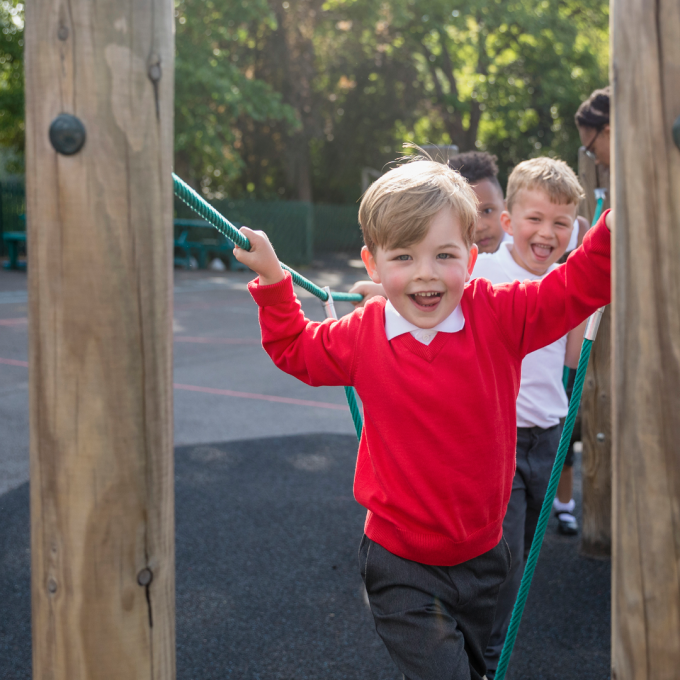New research has called on the Government to find additional funding to support young people's mental and emotional wellbeing and to take a preventative approach to the issue, rather than allowing mental illnesses to develop and become crises in later life.
These are some of the recommendations contained in a report from The Education Policy Institute (EPI) and The Prince's Trust, who have teamed up to study the mental health and wellbeing of young people aged from 11 to 17. Worryingly, researchers found that the Covid-19 pandemic is likely to exacerbate mental health problems among young people, with estimates showing that one in six young people are believed to have a mental illness - up from one in nine in 2017.
At Thrive, we share the view that prevention is better than cure and we echo the EPI's call for additional funding for children and young people's mental health. We have been training teachers and education professionals to support young people's mental wellbeing in order to prevent mental health issues for the past 25 years. We know that the best way to develop resilient, healthy adults is to ensure that children have positive relationships with adults they trust so that they can develop the self-awareness and insight to recognise and express their emotional needs.
Based on data from the Millennium Cohort Study, and supported by Tesco, the report, called Young people's mental and emotional health: Trajectories and drivers in childhood and adolescence, reveals new insights into what affects young people's wellbeing including relationships, background, and use of social media.
The research shows that the wellbeing of all young people declines by the end of their teenage years, highlighting the importance of emotional wellbeing in children and young people to ensure that they become resilient adults.
While acknowledging that school closures were necessary in order to ensure the safety of pupils and staff, EPI researchers are concerned that the increased isolation seen over the last year could cause damage to young people's wellbeing. They also question whether the £500m funding package focused on children and young people's mental health services announced in the Autumn Spending Review will be enough to tackle the issue. The EPI says that this amounts to less than £250 per young person with a diagnosable disorder and is 'unlikely to make a significant difference'.
The report calls for the prevention of mental health problems to be prioritised so that the level of primary and specialist resources required during a mental health crisis are needed by fewer individuals. Instead of focusing on this sort of reactive treatment to a mental illness after it has developed, the EPI believes that a preventative approach would be far more beneficial to the individual and more cost effective to society.
Based on its research, and given the risk identified of the pandemic leading to a further deterioration of young people's mental health and wellbeing, the EPI have made a series of recommendations to the Government. The Prince's Trust has said it will seek to work in partnership with government and schools to take these recommendations forward, where appropriate.
The recommendations include:
- Releasing a £650million post-pandemic wellbeing funding package to schools to match academic catch-up funding. The EPI says this would allow schools, if needed, to hire additional staff to deliver mental health support to pupils and teaching staff, improve links with local CAMHS, and deliver training to teachers.
- Build on the mental health aspect in the Health Education and Relationships and Sex Education curriculum. This could help young people to better understand how external factors affect their mental health and self-esteem. Techniques to support good mental health and reduce psychological distress, such as mindfulness, should be promoted, says the EPI.
- Improve the capacity of school leaders and teachers to support children with mental and emotional health needs. School leaders should be encouraged to spend time in alternative provision settings as part of ongoing CPD or prior to entering into a leadership role. The EPI says that it is crucial for leaders to know how to best support children with additional needs, including how to use trauma-informed approaches, and to be able to share this knowledge with teaching staff.
- Develop an evidence-based policy to prevent and tackle bullying giving details of funding, delivery and accountability.
- Ensure that young people have better access to exercise, including non-competitive activities, in their area and commission research to find ways of encouraging wider participation in physical activities.
- Increase funding to local mental health providers to allow them to work together to support children whose needs do not meet diagnostic thresholds. Current thresholds for access to specialist mental health treatment are high meaning that many children have to reach a crisis point before they are able to access care.
Over to you
Reduced anxiety and behavioural incidents. Calmer classrooms filled with engaged leaners. Improved relationships with parents and carers. These are just some of the outcomes reported by settings embedding Thrive’s whole-school approach to mental health and wellbeing. Are you ready to join them? Click here to get started.
Pass it on
Small actions can lead to a big ripple effect. If you enjoyed this post or found it helpful, please consider supporting us in our mission to help every child and young person feel safe, supported and ready to learn by sharing it using the social media buttons below.
Want to join a like-minded community of senior leaders and classroom staff benefitting from insights and strategies to improve attendance, behaviour and attainment? Add your email address below. (It’s easy to unsubscribe).






_680.jpg)

_680.jpg)
